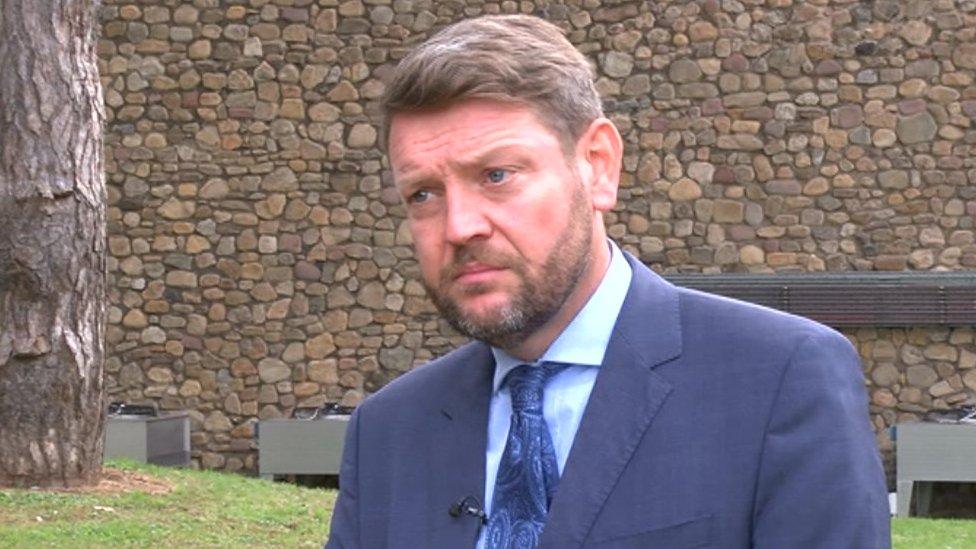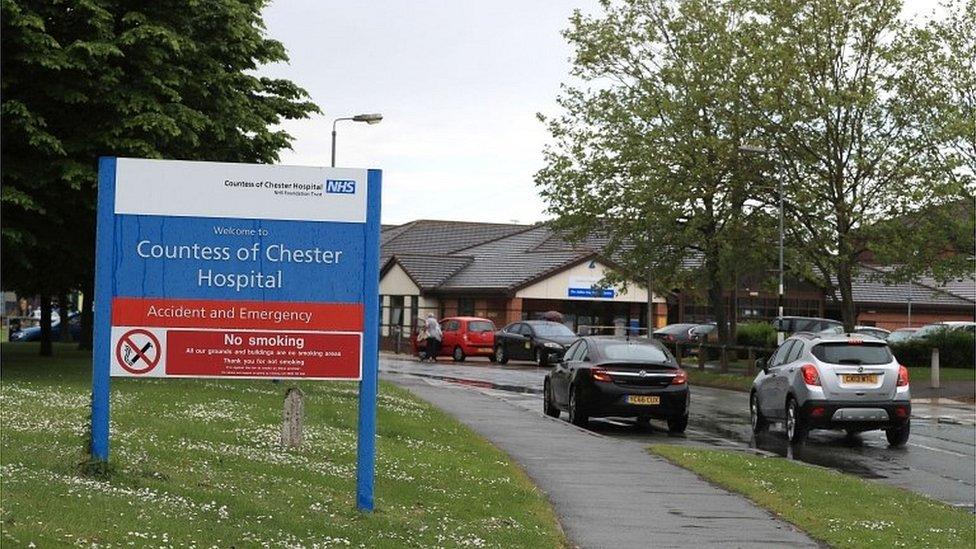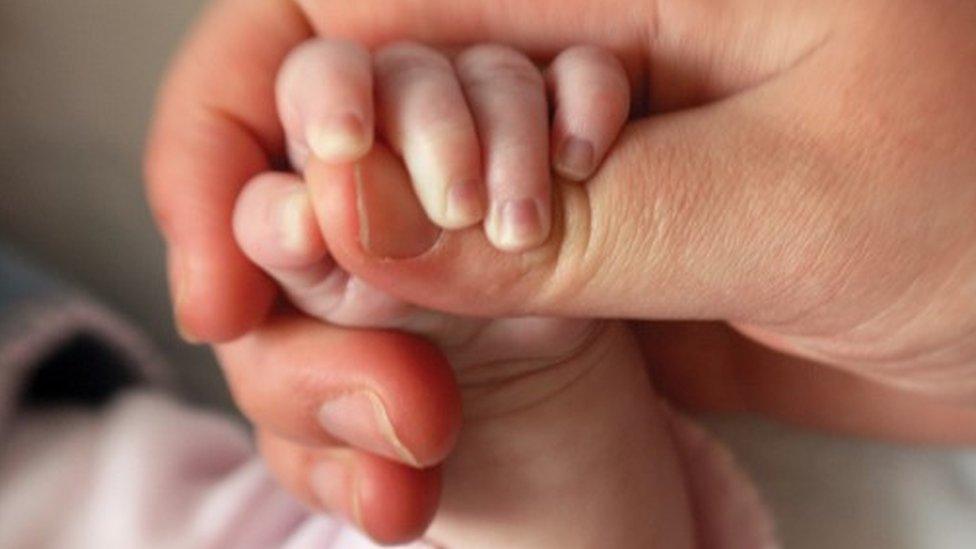Health board's apology over patient's 'premature' death
- Published

The patient was treated by the Aneurin Bevan University Health Board in October 2016
The death of a 42-year-old diabetic man days after having his toe amputated may have been avoided had he been treated differently, a watchdog has said.
The man, known as Mr C, suffered a pulmonary embolism and a blocked artery in the lungs in October 2016.
Nick Bennett, Public Services Ombudsman for Wales, said earlier referral and more protection when he was discharged may have changed the outcome.
Aneurin Bevan University Health Board has apologised for the failings.
Mr Bennett's report said the patient was at increased risk of deep vein thrombosis or a pulmonary embolism, and that protection should have continued after he was discharged from his second hospital admission.
It added that earlier referral by a specialist team, may have resulted in earlier treatment of his condition and might have prevented the need to amputate his toe.

Nick Bennett said the case was "desperately sad"
The investigation also found that further steps should have been taken before he was discharged, following his first hospital admission, which might have resulted in his care being managed differently.
"The desperately sad outcome of this case may have been avoided had Mr C been treated in the correct manner," Mr Bennett concluded.
"I am extremely concerned the patient was discharged early following his first hospital admission without full consideration of his condition.
"On his second discharge from hospital, he was not given appropriate protection against deep vein thrombosis and a pulmonary embolism.
"This case further highlights the importance of thorough discharge procedures for all patients.
"Mr C was just 42 years old when he passed away and the effect of such a premature death on his family cannot be underestimated."
The health board has agreed to make a payment of £4,000 in recognition of the failings identified in the report and has apologise to the family.
A spokesman for the health board said an action plan in response to the report is being finalised.
"We unreservedly apologise for the failings identified in the Ombudsman for Wales report and our thoughts remain with the family of Mr C," he said.
"We accept the report's findings and its recommendations. Since this case was brought to our attention we have made improvements to ensure that this does not happen again.
"We are committed to learning from concerns raised about our services to further improve the care we offer to our patients and we deeply regret the failings in the care of Mr C."
- Published23 October 2018

- Published24 October 2018

- Published1 October 2018
